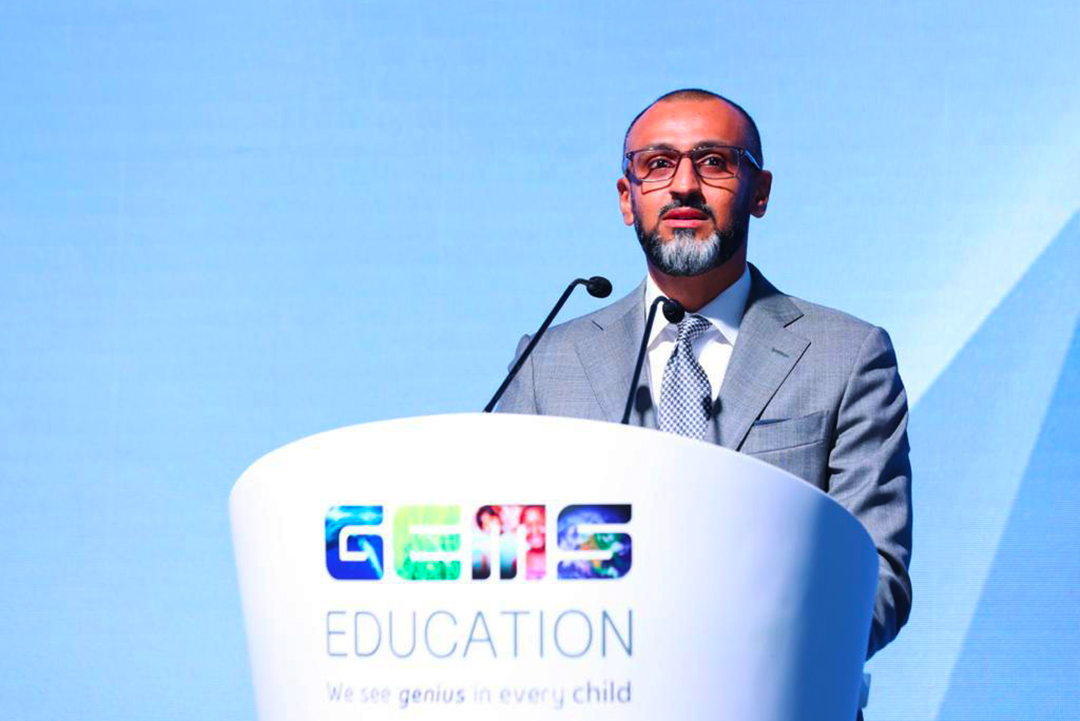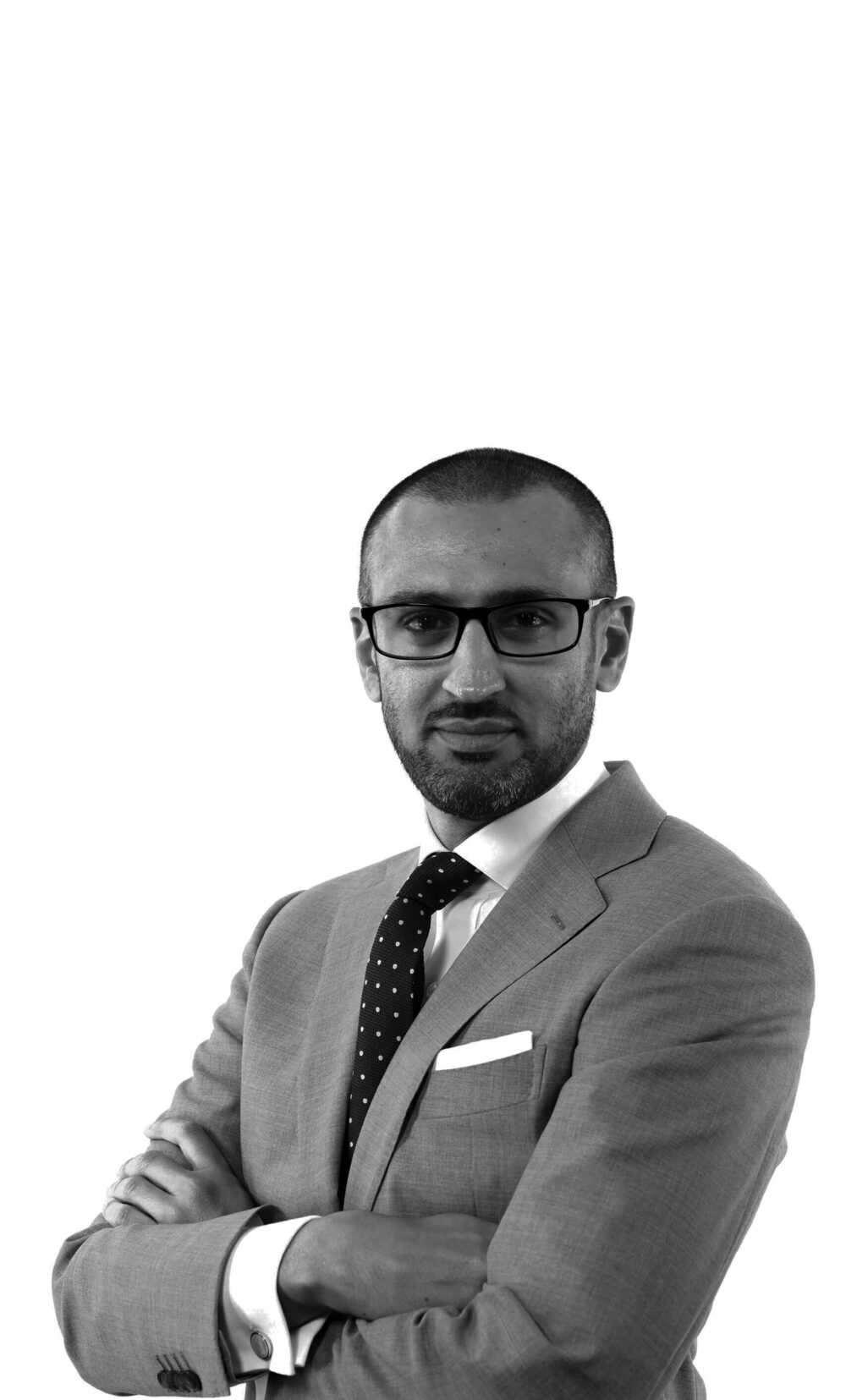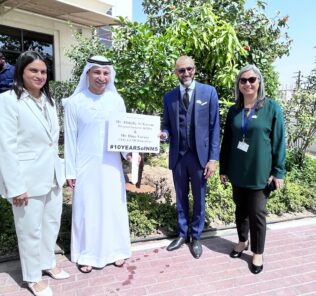~~~
In a world exclusive interview, conducted on the eve of I/GCSE Results Week in August 2023, SchoolsCompared.com met with Dino Varkey, Group Chief Executive Officer of GEMS Education, to talk about the state of education today; question whether we can look at the achievement of students in a different, much better way, and, to hear of Mr Varkey’s call to action to collectively step up and recognise that the responsibility for all our futures rests on the generation to come.
~~~
Much has been argued about the value of GCSEs.
With so many young people now staying in education until the age of 18 and beyond, the relevance of such high-stakes examinations for 16- year-olds has been questioned, with critics complaining that what should be a time of curious exploration instead morphs into an extended bootcamp on exam technique.
And that was before the news of this year’s tougher marking scheme…
GCSE/ IGCSE Results will be released this Thursday 24 August 2023, and commentators are once again bemoaning the predicted steep fall in the number of top grades awarded (as was the case for A Levels) as exam boards return to pre-pandemic marking systems to help curb Covid grade inflation.
But, while students and parents may fret at the prospect of lower grades, there is a very different sort of value that educators are interested in discovering through examinations, says GEMS Education Group CEO, Dino Varkey: “Value Add”.
This little-known, but centrifugally important, metric is one that parents often do not take much interest in, but which cuts to the heart of what a school must do to ensure no child is ever left behind and achieves to the absolute maximum extent possible: measuring the shifts of achievement in a child’s predicted flight path from when they first enter a school, as they improve, and develop, over time spent at school. This measurement, value-add, goes to the absolute heart of understanding how well a school is educating each, and every, child.
It’s one of the least well known but most meaningful ways of assessing a child and a school’s impact on that child, but it’s not got the reputation that it should, says GEMS Group CEO, Dino Varkey:
“Value Add is more important for educators, Achievement is more important for parents.
“At the end of the day most families are focused on whether their children are equipped and have the tools to be able to be successful in life. And that can be a terrible thing, because sometimes ‘success’ or ‘achievement’ for parents is very different to what actual achievement looks like today.
“But the issue is that we as educators haven’t figured out a way of being able to communicate what Value Add means effectively. The point I always make is: my family has been in education for generations, and I have been in education for the best part of two decades. If I as a parent can’t understand what Value Add is, then there is something wrong.
“Too often educators have been guilty of making some of our rubric inaccessible, because it can be very intellectual or technical.
“I’d love to get to a point at GEMS where there’s a better measure of Value Add and progression, but getting a consistent metric across all curricula is the hardest part. We’re working on it and I think we are close to getting to a point where we will be able to articulate and communicate consistently with all our families across the GEMS network around progress and Value Add.”

But this is not to say that the results of external exams such as the GCSEs that students are nervously anticipating do not also have value, says Mr Varkey:
“There is an incredible amount of value in GCSEs for parents, in terms of giving them a sense check of how students are doing.”
There is value in exams being external, adds Varkey, as “if it’s purely only teacher assessments, then the amount of rigor and independence you can attribute to that can be questioned.”
“Speaking as a parent, would I want to see the concept of GCSEs disappear? No. I want to know how my son or daughter is doing at that point in life. For me, having been educated in a British system for most of my life, I think there’s value in GCSEs.”
However, what is assessed and how it is tested is another topic entirely, adds Mr Varkey:
“I think there is a value in having the independence and the external validation of the GCSE, but the actual form of the assessment, what happens in those exams, does need to change and be made much more relevant. This is a much bigger question around what the curriculum should look like and how assessments should be done.”
“We also need to be asking ‘what do we expect our students to be able to do in 15 years?’ They can do so much more.
“Most institutions move too slowly to be able to respond to that. Which is why I think there is going to be an interesting inflection point down the road.”
Mr Varkey cites the comparison with the IB curriculum, which did not used to have any external assessment in its Middle Years Programme (MYP), but recently introduced a new, optional assessment for the MYP following feedback from parents.
“It was the largest aspect of feedback that we got from parents at our IB schools; people want to pinpoint how they can know if their kids are doing OK?
“Does this mean the way of assessing necessarily needs to be as high stakes as GCSE? Perhaps not. But there is value in having a level of independent, external qualification at around 15-16 years.”
As the leader of one of the world’s largest education operators and the largest network of schools in the UAE, what is Mr Varkey’s message for all those students nervously awaiting their GCSE results this week – and for those who perhaps do not end up receiving the results they hoped for?
“This isn’t the only barometer by which you will be judged in life.”
“If you are one of the students who is succeeding – that’s amazing, all the hard work paid off, and continue to use it to be successful.”
“If you haven’t got the results you were expecting: know that this isn’t the only thing that will define you in life. Use it as something to learn from.”
And for young people deciding on the next steps for their future, Mr Varkey says this:
“There is a great deal of expectation that those of us who have come before you, have on you – and it’s not fair. It’s not right. But unfortunately, we need you to be the guardians of our future.
“And hopefully, we have done everything we can, as your teachers and your parents, to give you the framework, and the value sets, that will enable you to do that because, frankly, if we’re going to secure the future of this world, you’re it.
“It doesn’t have to be in a big way, but even in the small things. If you’re doing the best that you can for yourself, your family, your community, your country, little by little that has a domino effect.
“You are the agents of change that will improve the state of our world.”
© SchoolsCompared.com. A WhichMedia Group publication. 2023. All rights reserved.































































Leave a Response